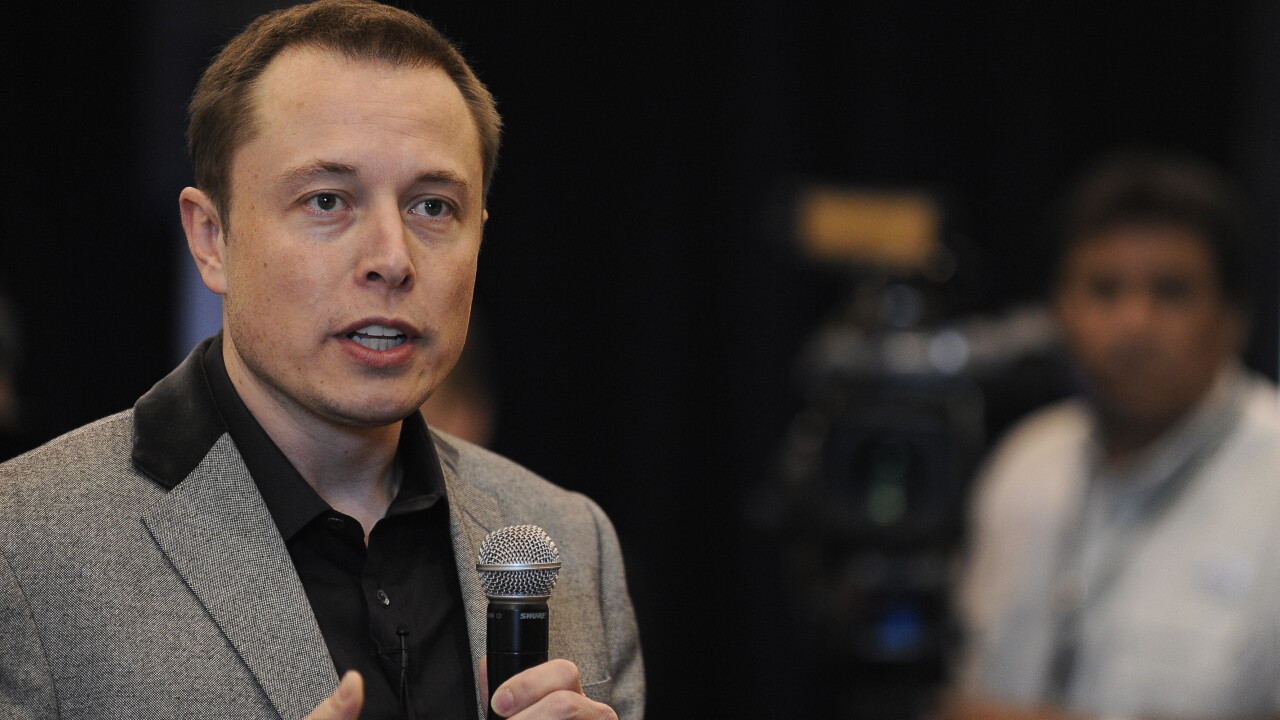
Elon Musk, co-founder of PayPal, Tesla Motors, and SpaceX, unveiled today the first design for his Hyperloop transit system. Based on his vision and what he tells Bloomberg Businessweek, the new form of transportation would be a solar-powered, city-to-city elevated transit system.
Passengers on embark on this 800 miles per hour ride through a steel tube sitting in an aluminum pod. Musk estimates that cost will be between $6 to $10 billion to create the Hyperloop, but believes tickets would be “much cheaper” than traveling on Amtrak.
Musk believes that when an investment of this size is made, it should have as significant of returns. He says that the Hyperloop will be safer, faster, lower in cost, more convenient, immune from weather, self-sustaining, earthquake resistent, and “not disruptive to those along the route.”
Since the tub would stretch for hundreds of miles, there were some that questioned whether it was realistic — after all, it’s going to have to deal with a lot of land issues and go through some populated areas. Musk doesn’t think that it’s going to be as big of an issue as before. From his talk with Bloomberg Businessweek:
The tubes would, for the most part, follow I-5, the dreary but direct freeway between L.A. and San Francisco. Farmers would not have swaths of their land blocked by train tracks but could instead access their land between the columns.
The design
Here are some images from Musk about the Hyperloop:
The idea for this rapid form of transit made news last year during an interview the famed entrepreneur gave to PandoDaily where he described the Hyperloop as the fifth major tent pole for modern transportation. During his talk, Musk said:
This system I have in mind, how would you like something that can never crash, is immune to weather, it goes three or four times faster than the bullet train… it goes an average speed of twice what an aircraft would do.
You would go from downtown LA to downtown San Francisco in under 30 minutes.
For those that may be unaware, the normal driving time between Los Angeles and San Francisco is typically six hours (it’s less than two if you’re flying).
The route
Based on Musk’s initial plans, the proposed route the Hyperloop would take will have mostly elevated rails. It would also consist of a 15.2 mille tunnel. It will travel along Los Angeles/Grapevine (North and South), the I-5 corridor, and the I-580 in the San Francisco Bay Area.
The estimated speed along each section is provided below:
- 300 mph (480 kph) for the Los Angeles Grapevine South section at 0.5g. (Total time of 167 seconds)
- 555 mph (890 kph) for the Los Angeles Grapevine North section at 0.5g. (Total travel time of 435 seconds)
- 760 mph (1,220 kph ) along I-5 at 0.5g. (Total travel time of 1,518 seconds)
- 555 mph (890 kph) along I-580 slowing to 300 mph (480 kph) into San Francisco. (Total travel time of 2,134 seconds (35 minutes)
Major stations are going to be planned in Los Angeles, San Francisco, San Jose, San Diego, Sacramento, and Fresno. If things go well, Musk thinks that Las Vegas could be added in the future.
A year of talking
The design of the Hyperloop has been kept secret, but this ambitious plan is something that Musk has dedicated himself to and has literally spent all night getting the initial look to a point where he hopes the public and critics will find informative and (hopefully) impressive.
Pulled all nighter working on Hyperloop (as did others). Hopefully not too many mistakes. Will publish link at 1:30 PDT.
— Elon Musk (@elonmusk) August 12, 2013
But whether or not this new form of transportation gets off the ground remains to be seen. Musk said during Tesla’s Q2 2013 earnings call that he regrets ever mentioning the Hyperloop. He’s actually too busy as he continues to focus on his two well-known and successful companies: Tesla and SpaceX. In his words, “I don’t have any plans to execute.”
So Musk is simply going to lay out his vision and let someone else pick up the baton and run with it. Perhaps it’s his vision that transportation be a community-driven one and not something owned by a single person, entity, or company.
Photo credit: ROBYN BECK/AFP/Getty Images, Elon Musk via Bloomberg Businessweek
Get the TNW newsletter
Get the most important tech news in your inbox each week.




















